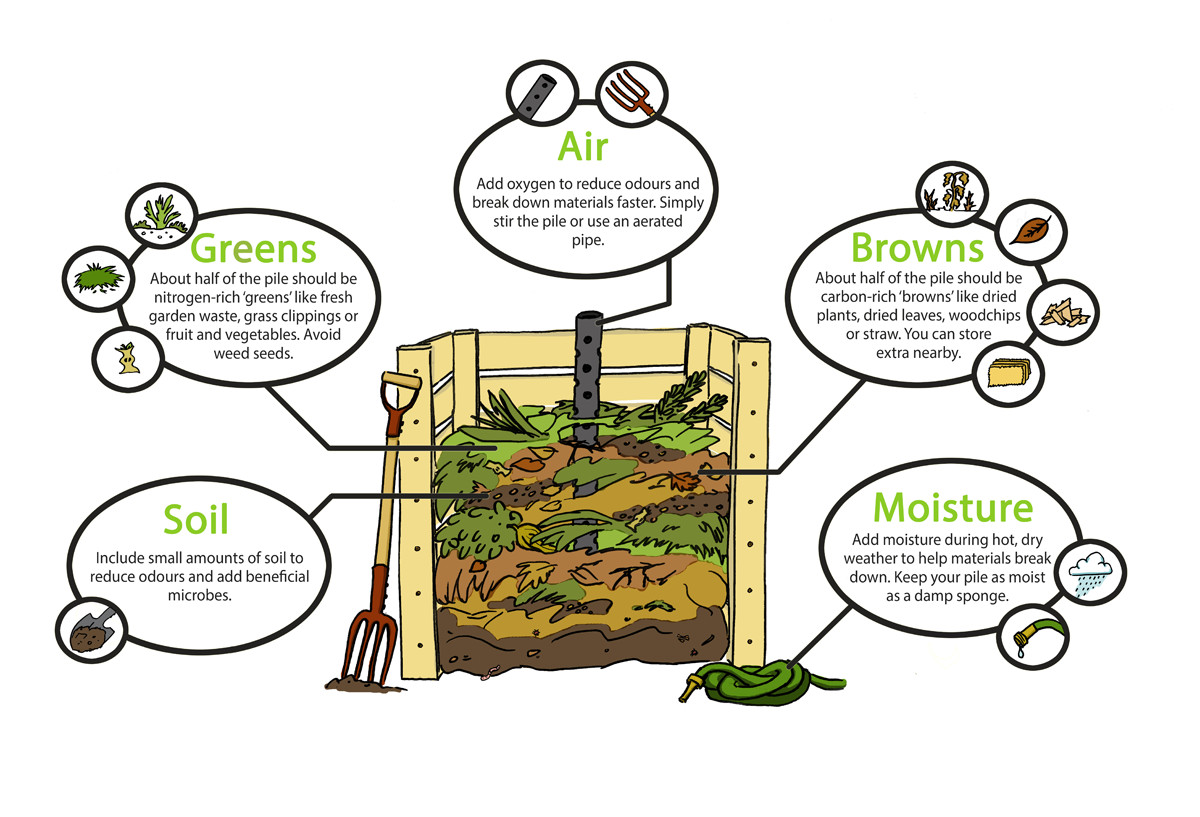
Compost troubleshooting
What to do when it goes awry
Items to AVOID in Your Compost
- meat, bones & dairy products
- fat & oils
- treated wood (including sawdust or wood chips from treated wood)
- diseased plants
- weeds with mature seeds & persistent weeds
- pet faeces
- materials that have been treated with pesticides
Have questions about what can and cannot go into your backyard compost bin? Use our Waste Wizard tool at saskatoon.ca/wastewizard.
Troubleshooting
- Smelly. Turn compost materials with a garden fork and add some high carbon materials (like dried leaves and straw) and soil.
- Animals
- Set mouse traps
- Do not put materials into your compost bin that are listed under the Items to Avoid in Your Compost section
- Consider using a more animal-resistant compost bin
- Switch to a different method of composting (e.g. vermicomposting)
The City of Saskatoon offers a rebate on your rain barrel and compost bin purchases.
The rebate form is available online
Other Considerations
- Particle size. Bacteria work faster if their food is in smaller pieces. Take time to break up items as you add them. Woody materials will only compost well if they are shredded.
- Pile size. Compost piles work better if they are at least one cubic meter in size (approximately 3’ x 3’ x 3’). If you don’t have enough materials at the start, no problem. Materials can be added gradually.
- Order prevents odour. To avoid odour and insect problems, cover Greens with Browns or a layer of soil.
- Materials shrink. One of the biggest surprises to new composters is how much their pile shrinks. Finished compost has only a quarter to half of the volume of the starting mix.
- Winter. Small compost piles will freeze over the winter, which is no problem. As soon as the pile thaws in the spring, the composting process picks up where it left off. You can keep adding materials, such as food scraps, throughout the winter. Simply add Browns in the spring to ensure your pile has an adequate amount of carbon and then give it a stir!

